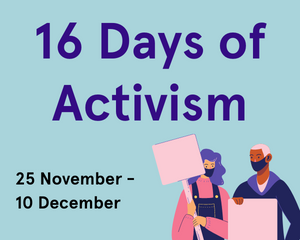This page has information on services that are available to provide further support, as well as information about how you can respond to somebody who discloses family violence.
In an emergency
If you are in immediate danger, please call 000 for police or ambulance help.
Services available
If you use the National Relay Service, options for connecting with services can be found here.
If you need an interpreter, phone 131 450 to access the Telephone Interpreter Service (24 hours). They will connect you with the service you want.
The Orange Door
The Orange Door is a free service for adults, children and young people who are experiencing or have experienced family violence and families who need extra support with the care of children. visit their website to find your nearest service.
safe steps: Family Violence Response Centre
Telephone counselling and referral to safe accommodation
Free call: 1800 015 188 (24 hours)
1800 RESPECT
National sexual assault and family violence counselling service
Ph: 1800 737 732 (24 hours)
In Touch – Multicultural Centre Against Family Violence
Culturally sensitive services to meet the needs of women and children from culturally and linguistically diverse backgrounds affected by family violence.
Ph: 1800 755 988
Elizabeth Morgan House Aboriginal Women’s Service Inc
Provides a range of services (legal, counselling, information and referral) to Aboriginal women and their children experiencing family violence.
Ph: 03 9403 9400 (9.00am-5.00pm Mon-Thurs, 9.00am-4.00pm Fridays)
WithRespect
WithRespect provides resources and counselling for LGBTIQ+ people on maintaining healthy relationships.
Ph: 1800 542 847 (Weekdays, 9am-5pm)
GenWest
Provides women and children in the western region with a range of family violence services – including case management and children’s counselling.
Ph: 1800 436 937 (Weekdays 9.00am – 5.00pm)
Email: info@genwest.org.au
No to Violence Men’s Referral Service
Telephone counselling, information, and referrals to men to assist them to take action to stop using violent and controlling behaviour.
Ph: 1300 766 491 (Weekdays 8.00am-9.00pm. Weekends 9.00am-6:00pm)
Lifeline
Provides access to 24-hour crisis support and suicide prevention services
Ph: 13 11 14 (24 hours)
Kids Help Line
Support and information for children
Ph: 1800 551 800 (24 hours)
Responding to disclosures
How you respond to a disclosure can make a big difference to a person’s recovery and how likely they are to seek help in the future. Here are some tips:
- Listen with empathy, without interrupting and without judgement. Let them share their story, at their own pace.
- Believe what they tell you and let them know you believe them. It can be very difficult to disclose experiences of violence. People may fear not being believed. You can say, ‘It must be hard for you to talk about this. A lot of women are afraid no one will believe them,’ or ‘I can see it has taken courage for you to tell me this.’
- Reassure them that the violence is unacceptable, and that it is not their fault. Let them know that no one deserves to be abused. You could say, ‘The person who chooses to be violent is the one who is responsible.’
- Refer them to support services and other available help. Let them know that they can just get support and information. They won’t be pressured to leave the situation.
Thing to avoid:
- Talking down: ‘Well, it’s obvious that you’re not thinking straight.’
- Ordering: ‘You should leave him. I’ll get you into a refuge.’
- Avoidance: ‘Maybe we can talk about this later.’
- Logical argument: ‘It’s a fact that violence only gets worse over time.’
- Judging: ‘You know it’s harmful to expose the children to this.’
More information on how to respond to disclosures is at Safe and Equal.
